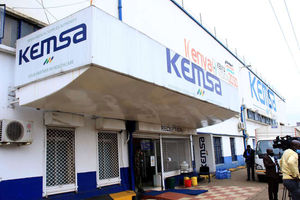Local regulator launches probe into Sh3.7bn nets tender

The Kenya Medical Supplies Agency (Kemsa) chief executive officer Terry Ramadhani. The public procurement regulator has launched investigations into the Sh3.7 billion mosquito nets supply tender that Kemsa bungled, setting the country on a collision course with Geneva’s Global Fund and risking millions of lives to malaria.
The public procurement regulator has launched investigations into the Sh3.7 billion mosquito nets supply tender that the Kenya Medical Supplies Agency (Kemsa) bungled, setting the country on a collision course with Geneva’s Global Fund and risking millions of lives to malaria.
On Thursday, the Public Procurement Regulatory Authority wrote to the Kemsa CEO Terry Ramadhani seeking copies of documents detailing the tender opening and evaluation process.
Monday deadline
Ms Ramadhani has until Monday to submit a chronology of events, her response and several documents relating to the Sh3.7 billion tender.
“We have received information relating to irregular processing of the subject tender and pursuant to the provisions of sections 9 and 43 of the (Public Procurement and Disposal) Act, the Director-General has instituted an audit of the subject procurement. Taking cognisance of the above and pursuant to the provisions of section 34 of the Act, provide a detailed chronology of the subject procurement,” the letter reads in part.
“The listed documents plus your response on the procurement process should reach the Authority by Monday 15th May 2023,” PPRA Director-General Patrick Wanjuki further said in the letter. The investigation will seek to establish if there were any legal violations of public procurement laws that could lead to individuals being charged for infractions.
The Global Fund had tasked Kemsa with procuring over 10 million treated mosquito nets that were intended for distribution to low-income households in 23 counties. But Kemsa officials tilted rules to favour a company whose bid documents were not properly presented and should have been kicked out in round one of the process, as per a Global Fund review.
The documents further indicate that the only firm that met all requirements under both Kenyan and Global Fund procurement laws and guidelines, China’s Tianjin Yorkool, was unfairly knocked out of the tender evaluation. Kemsa knocked Tianjin Yorkool out for failing to provide a manufacturer’s authorisation which is usually given by manufacturers to ascertain that the products quoted by specific bidders will be supplied.





